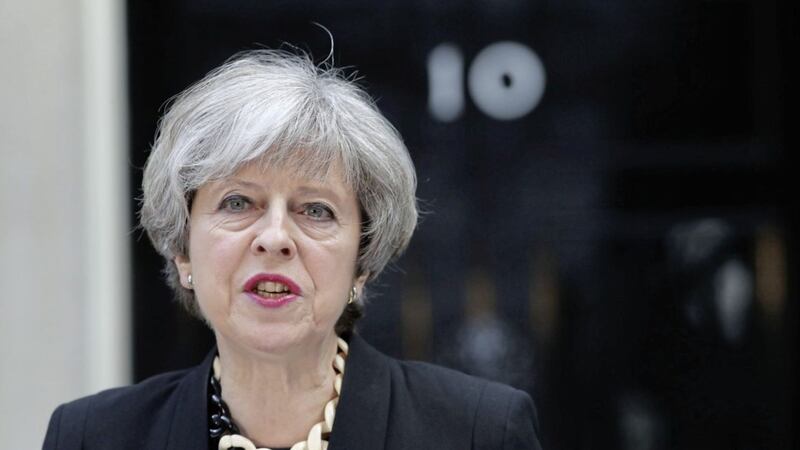When Theresa May attempted to divert attention from the humiliating outcome of the UK general election by announcing that she intended to form a new administration which relied on her `friends and allies in the DUP`, the widespread snorts of derision which followed must have been audible on both sides of the Irish Sea.
It should be abundantly clear that the relationship which has since blossomed between the Tories and the DUP over the weekend is based entirely on short-term expediency, rather than any form of shared values, and will disappear again as soon as the parliamentary arithmetic changes.
Mrs May displayed exceptionally poor judgment by forcing voters to go to the polls last week three years earlier than she had previously promised would be the case, and her sole excuse was that she needed a strengthened mandate to negotiate her version of Brexit.
The timing of her announcement in April came at a crucial stage in the inter-party talks at Stormont, which are due to be resumed today, and not only effectively ended any chance of Arlene Foster's early return to her previous post as first minster but also indicated complete indifference to the wider process.
We are now expected to believe that Mrs May was actually always an ardent admirer of the DUP and remains entirely comfortable with the eye-catching views of senior members of that party on issues like creationism, climate change and the equality agenda even before their equally aggressive position on matters like legacy investigations and parading is considered.
When such polite fiction is put to one side, the fact remains that she entirely failed to gain an endorsement of her embarrassingly confused strategy over leaving the EU and is a critically wounded figure.
Linking up with the 10 DUP MPs can give her some temporary breathing space in the 650-seat House of Commons, but it is no basis for constructing a government capable of lasting for a full five years and finalising a complex accord with major European leaders who increasingly do not believe what they are being told from Whitehall.
Mrs May should be aware that the slightest hint of a shabby deal with the DUP which undermines power-sharing at Stormont will be put under an intense spotlight not just in Dublin and Westminster but also through the devolved structures in Edinburgh and Cardiff and indeed by informed observers across Europe.
She should not need to be reminded that, on a rare visit to Belfast just under a year ago when she was still Britain's home secretary, she declared it was `inconceivable' that the existing Irish border arrangements could remain in place in the event of a Brexit.
Mrs May has since repeatedly attempted to distance herself from her own statement in a way which does her little credit and deserves to be specifically addressed in the interests of ordinary people from all traditions across Ireland.
If she wishes to retain any credibility as a prime minister with an aspiration to extend her brief term of office in Downing Street, she must publicly set out the complete details of the incentives she has offered the DUP
She should also provide an immediate and comprehensive explanation of her plans for the line on a map which not only divides Ireland but is also scheduled to separate a vibrant EU from a confused and retreating UK.








